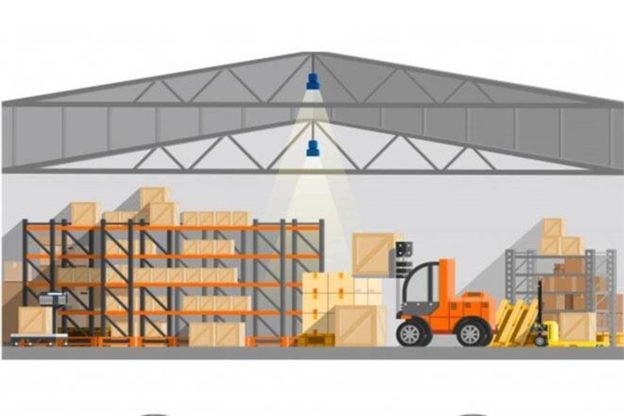Logistics for MSMEs: For smaller logistics MSMEs, continuous cash flow is integral to ensure operations are not hampered. However, they characteristically have lesser capital as opposed to their well-established counterparts.
Logistics for MSMEs: The Covid-19 pandemic debilitated supply chains across the world while necessitating the need for smooth, efficient logistics. Amid the crisis, it was the MSMEs in the logistics industry that faced challenges at multiple levels. Considered to be the backbone of the Indian economy, MSMEs contribute a total of 30 per cent to the country’s GDP. With the pandemic wreaking havoc on supply chains, logistics in MSMEs took a major hit.
Right from a reduced capacity to depleting capital with no sources of fresh funding, a rapid, large-scale shift in consumer behavior and expectations that resulted in a surge in online shopping, there were radical changes in nearly every aspect of logistics. This created a bullwhip effect, impacting inventory, supplies, warehousing, order processing, etc. While certain challenges already existed for small-scale logistics businesses at various stages, the viral outbreak magnified these issues, calling for reparative action to resume smooth workflows.
Fundamental issues and cascading pandemic effect
For smaller logistics MSMEs, continuous cash flow is integral to ensure operations are not hampered. However, they characteristically have lesser capital as opposed to their well-established counterparts. This would mean that even hitting minor snags would have a sizeable impact on smaller companies while the bigger ones would be able to get business back on track more easily.
With increasing competition in the industry, logistics MSMEs often struggle to overcome these challenges and thrive in the market. Adding to their woes, the pandemic further amplified the issue of capital shortage and the cash crunch that logistics MSMEs face. Overall, according to the Indian Chamber of Commerce, the logistics sector’s losses were estimated to be at a colossal Rs 50,000 crore.
Apart from this, consumer expectations have evolved dramatically over the past year and more and more consumers are opting for convenient features such as online shopping, digital payments, and doorstep deliveries. With a fragmented supply chain and lack of manpower due to reverse migration during the lockdown, MSMEs in the logistics industry are bearing the brunt as they struggle to meet the fast-changing customer expectations.
Furthermore, logistics MSMEs also face obstacles in the form of the rising cost of transportation, rise in fuel prices, and digitizing operations that larger platforms can tide over with ease, due to a lack of capital. Moreover, they also struggle to achieve supply chain visibility and target global markets. While these challenges are faced by all players in the logistics industry, the impact is greater on small and medium businesses as tackling these challenges would require capital infusion.
Subscribe to Financial Express SME newsletter now: Your weekly dose of news, views, and updates from the world of micro, small, and medium enterprises
Shared logistics, government assistance, and road ahead
The current scenario has made both logistics giants as well as MSMEs rethink their operational strategies and implement bolstered business continuity plans as the pandemic has been a wake-up call. For instance, one of the key strategies implemented in the logistics sector over the past year has been contactless logistics. Given the safety concerns that have been growing along with customer preference for doorstep delivery of shipments, contactless logistics has been a key trend that has emerged and is likely to stay. When it comes to business continuity plans, logistics MSMEs need to ensure that they make a one-time investment in technology to facilitate smooth, cost-effective operations. Moreover, they can also partner with logistics players that have a pan India presence and robust infrastructure.
Against this backdrop, the larger companies engaging in shared logistics can be a small step in the right direction to help set logistics MSMEs on the path to recovery. Since large logistics companies have ample infrastructure and capital along with a vast network to facilitate seamless operations, they can assist small and medium-sized players with infrastructural and operational needs by leveraging the technology and capital they possess.
Apart from this, MSMEs in the logistics sector can also benefit from government support such as the recently- announced National Logistics Policy that aims to create a single-window e-logistics market, focus on skill development and employment generation, and making MSMEs more competitive. This will allow MSMEs in the space to accelerate their recovery. Besides, the single-window e-logistics market will increase efficiency, enable cost optimization, help the central repository acquire more customers, and drive business growth.
Although these are trying times for MSMEs in the logistics industry, continued support from the government along with takitng steps towards adopting technological solutions such as AI-led customer support, real-time visibility and order tracking, advanced robotics, blockchain, advanced analytics, warehouse automation, etc., will allow logistics MSMEs to revive themselves swiftly. Additionally, such solutions will also enable them to stay relevant amidst fast-changing global supply chains while helping to tackle challenges effectively, contribute to operational efficiency, and will allow scope for expansion.
https://www.financialexpress.com/industry/sme/cafe-sme/msme-logi-shared-logistics-can-help-put-msmes-on-recovery-path-with-infra-operational-support-from-large-firms/2301879/







